Navigating a boat on the water involves more than just understanding the basic rules of the sea; it’s about ensuring the safety and enjoyment of all parties involved. One often overlooked etiquette is the importance of slowing down while passing recreational fishing boats. But why is this practice so crucial?
- Avoid a Collision: As boats approach each other, the risk of a collision rises, especially if one boat doesn’t anticipate the other’s movement. Recreational fishing boats often have fishing lines cast out, and their direction can change based on where they believe fish are located. Passing slowly ensures that you have ample time to adjust your course if the fishing boat makes unexpected moves.
- Reduce Large Wake: Speeding boats produce a large wake. This wake can destabilize smaller fishing boats, potentially causing them to capsize or making onboard tasks, like baiting or casting, more challenging.
- Protect Fishing Lines: Fishing lines can be long and may extend far from the boat itself. A fast-moving boat can easily get entangled with these lines, causing damage or even snapping them. By slowing down, you reduce the chances of cutting or entangling fishing lines, saving both you and the fishermen from potential problems.
- Passing on the Starboard and Understanding Sides: When passing a fishing boat, it’s common etiquette to pass on the starboard (or the right-hand side). However, if a fishing boat has its fishing lines cast off the port side (left-hand side), it’s even more critical to slow down and ensure that you provide ample space, lest your wake or boat itself disrupts their activity.
Boating enthusiasts and recreational fishers often share the same waterways, making it crucial to maintain safety and courtesy while navigating these areas.
Recent statistics show that speeding boats have caused numerous accidents and disturbances among fishing communities.
I’ll discuss the importance of slowing down when passing recreational fishing boats, the potential hazards involved, and tips for safe and courteous boating.
Safety Considerations
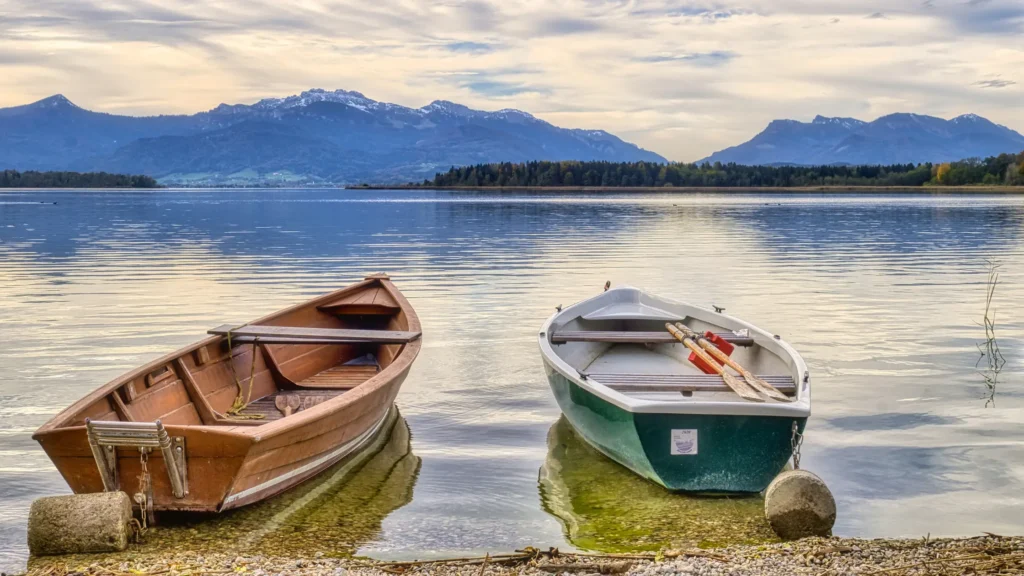
One major reason why boaters should slow down while passing recreational fishing boats is safety.
Maintaining a safe speed is crucial to minimize the risk of collisions. Fishing boats often have limited maneuverability, and sudden course changes can lead to accidents.
Additionally, larger boats can create large waves, which can cause smaller boats to capsize or lose balance, leading to injuries or equipment damage.
Potential Hazards of Speeding Near Fishing Boats:
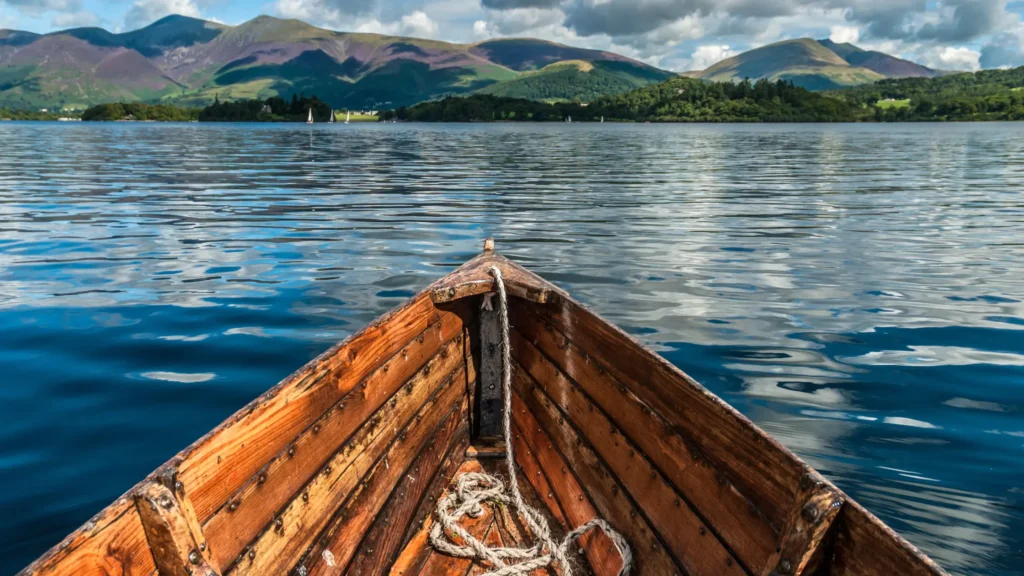
Passing recreational fishing boats at high speeds can create large waves, disrupting fishing activities, causing potential accidents, and damaging equipment.
Moreover, speeding boats can cause fish to scatter, diminishing the chances of a successful catch for anglers. Furthermore, a speeding boat may not provide enough time for the fishing vessel’s captain to take evasive action, leading to collisions and even serious injury.
Navigating Narrow Channels and Restricted Areas:
In narrow channels or areas with local laws and speed limits, it’s essential to slow down and maintain a safe distance from other vessels, especially recreational fishing boats.
These areas often have limited room for maneuvering, making it crucial for boat operators to exercise extra caution and maintain a safe speed.
Understanding Navigation Rules and Etiquette:
Proper navigation rules, such as knowing the stand-on and give-way vessels, play a vital role in ensuring everyone’s safety on the water.
When approaching fishing boats, it’s essential to pass on the port (left) side or starboard (right) side, depending on the situation and the other boat’s signals.
Giving a wide berth and adhering to the general rule of slowing down while passing fishing boats can prevent potential accidents and show respect for other boaters’ activities.
Communication and Hand Signals:
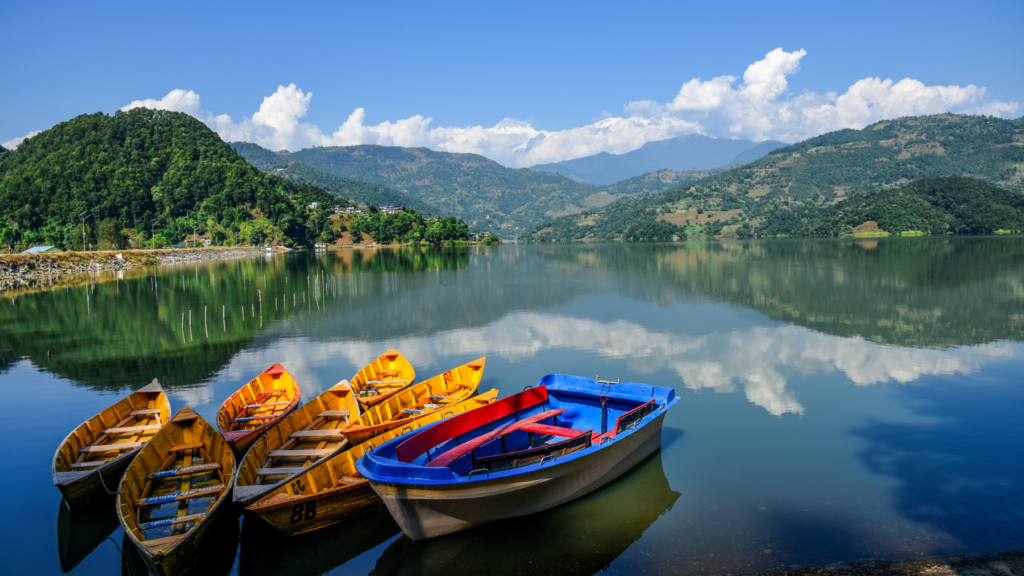
Effective communication between boat operators is crucial for preventing misunderstandings and potential hazards.
Using hand signals or radio communication can help establish the best course of action when passing a fishing boat, such as signaling which side to pass or alerting the other vessel of any potential hazards.
The Importance of Common Sense and Courtesy:
Slowing down when passing recreational fishing boats demonstrates a commitment to safety and courtesy on the water.
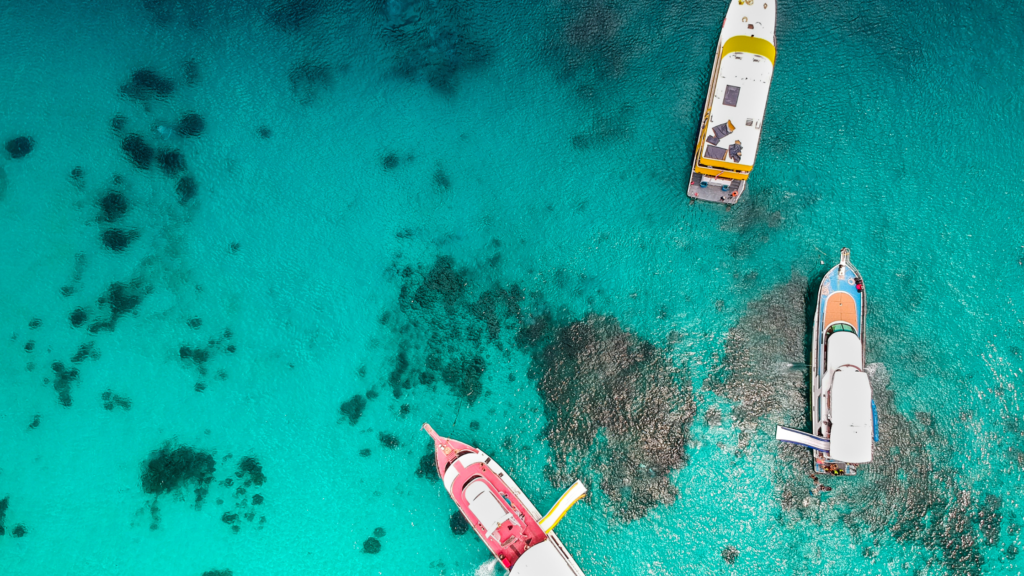
It’s essential to consider the needs of other boaters, particularly those engaged in fishing activities, and ensure there’s enough space and time for both parties to navigate safely.
By slowing down and maintaining a safe distance from recreational fishing boats, boaters can minimize the risk of accidents, demonstrate respect for fellow waterway users, and contribute to a more enjoyable and safe experience for all.
Remember to follow local laws, and navigation rules, and maintain open communication with other vessels to ensure a harmonious boating environment.


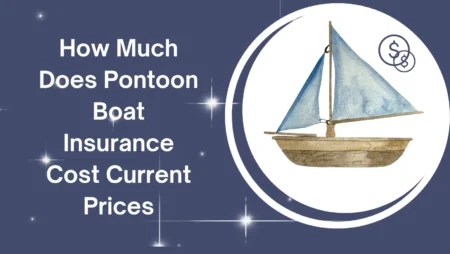

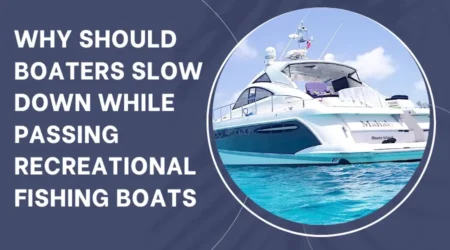

![How To Build A Boat Seat Box?- [Innovative Methods 2023]](https://theboatingbuds.com/wp-content/uploads/2022/06/How-To-Build-A-Boat-Seat-Box-feature-image-450x253.jpg)
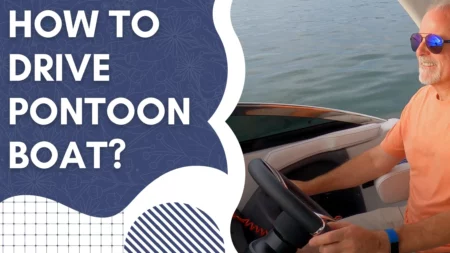
![How To Dewinterize An Inboard Boat Motor – [14 Steps 2023]](https://theboatingbuds.com/wp-content/uploads/2022/06/How-To-Dewinterize-An-Inboard-Boat-Motor-1-450x253.jpg)